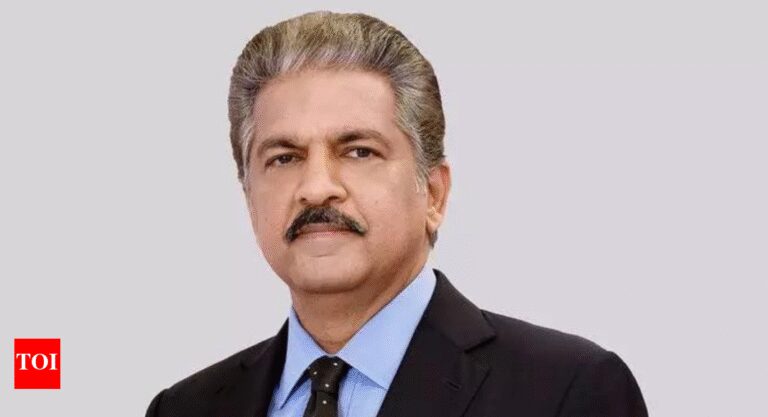Stakeholders Empowerment Services (SES), InGovern, and Institutional Investor Advisory Services (IiAS) have called for rejecting Zee’s plan to issue preferential warrants to two promoter entities led by the company’s founder and chairman emeritus, Subhash Chandra. The warrants, upon conversion, would lift the promoters’ stake from 3.99% to 18.39%.
The proxy advisory firms cited pricing, the rationale for raising funds through warrants, and the choice of the financial instrument as the key reasons for their recommendation.
A spokesperson for Zee rejected the recommendations of the proxy advisory firms, arguing that the company’s decision was taken by an experienced board in the shareholders’ best interests.
On 18 June, the media company’s board approved ₹2,237 crore”>raising ₹2,237 crore from two promoter entities by issuing convertible warrants at ₹132 each. Each warrant, when exercised over the coming 18 months, will be converted into one equity share. A quarter of the sum is to be paid upfront in cash, and the remainder at the time of conversion.
IiAS argued that as of 31 March, Zee had cash and treasury investments amounting to ₹2,410 crore and didn’t need additional fund infusion.
“Given this substantial liquidity, the rationale for raising additional capital—resulting in a 15% dilution on the expanded capital base for non-promoter shareholders—remains unconvincing,” the firm wrote in a note dated 23 June.
SES argued against pricing the warrants based on a formula recommended by the Securities and Exchange Board of India—which takes into account prior share price movement—as this does not account for the share price at the end of the 18-month exercise period.
Zee’s share price has steadily increased since sinking to a 12-month low of ₹89.29 in March. On Friday, the shares closed at ₹144.25 apiece on BSE.
InGovern has argued in favour of considering alternate fundraising methods such as a qualified institutional placement of shares or a rights issue, where fresh equity shares are issued to shareholders immediately rather than over a long exercise window.
A revolving door at Zee’s board
IiAS and SES also recommended that shareholders not ratify Saurav Adhikari’s and Divya Karani’s appointments to Zee’s board. Adhikari was appointed a non-executive, non-independent director on 29 November, and Karani an independent director on 23 January.
Zee will seek approval for their appointments on 8 July, which SES said violates the three-month window within which listed companies must get shareholder ratification for board appointments.
IiAS, however, said their appointments were in line with statutory requirements. “Nevertheless, we do not support the two board appointments because of our concerns with the board’s track record in executing its fiduciary responsibilities towards shareholders,” it said.
If shareholders reject their appointments, Adhikari and Karani would join a list of more than 15 directors booted out Zee’s board over the past three years, including Chandra’s son Punit Goenka, who in November failed to secure shareholders’ approval to continue as a director. He remains Zee’s CEO.
“… The board has protected Punit Goenka by allowing him to continue leading the company, while not being on the board. As a result, the board has ignored the voice of shareholders,” IiAS said in its report. “Given these past actions, we question the independence of the board’s decision-making and raise concerns that it may not be acting in the best interests of shareholders.”
The proxy advisor also challenged the basis of Zee’s promoters increasing their stakes in the context of recent challenges, including a tussle among shareholders and the promoters.
Zee’s spokesperson said the board approved the issuance of preferential warrants to the two promoter entities following an assessment of the company’s growth plans by investment bank JP Morgan.
“The Company believes that raising funds from the Promoters is a preferred route, given its strategic benefits and the commitment it demonstrates from the promoter group,” the spokesperson said in an email in response to Mint’s queries.
The spokesperson added that the increase in promoter stake will ensure Zee gets a long-term investor whose interests align with the company’s strategic growth plans and ensure continuity in leadership.
The spokesperson also said the proxy advisory firms had not made any specific or relevant points to justify their recommendations against Adhikari and Karani.
InGovern recommended ratifying Adhikari’s appointment, but said shareholders must question his resignation from Zee’s board and subsequent reappointment with days. Adhikari was appointed to the board on 15 November but resigned ahead of the company’s annual general meeting on 28 November, only to be reappointed the following day.
Why the recommendations matter
The views of the proxy advisors assume importance in the case of Zee as 96% of the company’s stock is held by public investors. Of this, nearly 39% is held by domestic and foreign institutional investors, including HDFC Mutual Fund (3.66%), ICICI Prudential Mutual Fund (3.04%), Life Insurance Corporation of India (4.49%) and Norway’s Government Pension Fund Global (3.86%).
Institutional investors generally rely on the recommendations of proxy advisors when voting on company resolutions.
Zee needs at least 75% shareholder approval for its special resolutions on the warrants issue and Karani’s appointment to pass muster. It needs 50% shareholder approval for Adhikari’s appointment to be ratified.
The lack of a larger stake in Zee has been a pain point for the Subhash Chandra group, as they have been outvoted by minority shareholders whenever there has been a difference of opinion.
Meanwhile, shareholders have been unhappy with the extent of control the promoters have over the company despite their small stake.
Following its failed merger with the Indian entertainment business of Japan’s Sony Group Corp., Zee has set in motion a turnaround plan to cut costs and double down on growth-focused investments.
Zee is developing new business units to expand its audience and augment revenue streams, as per an investor presentation published this month. This includes micro dramas, user-generated content, live events, edutainment and emerging sports.
The company is also exploring acquisitions or strategic partnerships in high-growth businesses such as digital and music.





